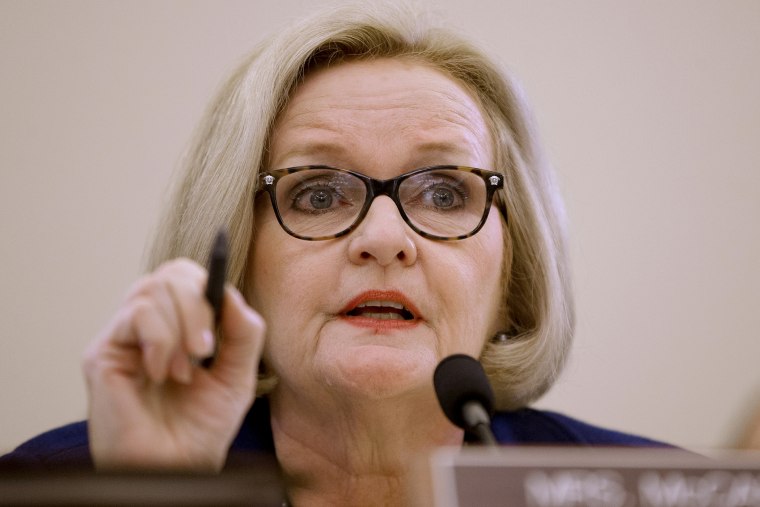Missouri Sen. Claire McCaskill hosted a round-table Monday on campus sexual assault, the first of three that she and other Senate allies hope will lead to a better, more transparent process to prevent and respond to sexual assault, harassment and dating violence.
McCaskill, along with fellow Democratic Sen. Tammy Baldwin, of Wisconsin, asked for feedback from a group that included survivors, university officials and other stakeholders. The discussion covered a range of issues, including how schools can make the data they collect more accessible to students and prospective students, how to create more effective penalties for schools that violate laws governing campus safety and gender equity, and whether or not reporting crimes to law enforcement should be mandatory.
“If you want to solve this problem, make victims comfortable making that choice [whether to report] themselves,” Laura Dunn, executive director of SurvJustice and survivor of assault, said of mandatory reporting. Survivors, Dunn argued, need to see the system can work before they will feel comfortable coming forward regularly.
One way to do that, attendees agreed, would be mandatory anonymous campus climate surveys. The White House announced in April it would be asking schools to submit climate surveys, but they are not yet required to do so. The element of anonymity, advocates said, would make victims feel safer reporting than if they had to go to law enforcement.
Two laws, the Clery Act and the Campus SaVE Act, both aimed at making campuses safer and increasing transparency, were the main focus of discussion. Future meetings, planned for June, will focus on Title IX and on enforcement at the campus and criminal justice level.
The Clery Act, which was passed in 1990, sets requirements for schools to keep track of crime statistics and release an annual report on those statistics. However, different states do not have uniform sexual assault laws or definitions for certain things covered under the law, leaving many school administrators without clear guidance on what must be reported each year.
Sixteen states, McCaskill pointed out, have definitions of consent that do not include incapacitation, despite the fact that alcohol is often used as a tool by perpetrators of sexual assault. “I think that is one of the things we need to look at in this legislation -- how can we incentivize states to update their definition of ‘consent,’" McCaskill said.
The Campus SaVE Act (Campus Sexual Violence Elimination) was added to the 2013 renewal of the Violence Against Women Act. It sets standards for how schools deal with internal investigations and disciplinary proceedings, from training officials involved in the process to setting evidence standards and ensuring confidentiality.
President Obama created a White House task force in January to look at campus sexual assault and violence and ordered them to issue recommendations within 90 days. That task force, led by Vice President Biden, released its report on April 29. In addition to the recommendations and model policies and protocols for schools to follow, the government has created a website, NotAlone.gov, that includes resources for students looking for information about their schools or about filing a Title IX complaint.
